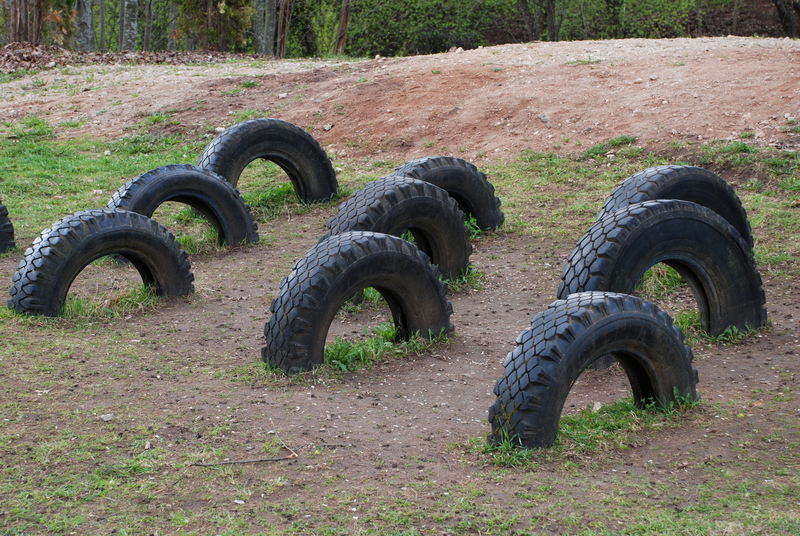Comprehensive Approaches to Reduce Waste in Manufacturing
The industrial world is going through a transformative phase, as businesses strive to increase efficiency and sustainability. One of the primary challenges in this transformation is minimizing waste in manufacturing processes. Reducing waste not only enhances environmental sustainability but also optimizes operational costs and boosts productivity. In this article, we delve into a range of comprehensive approaches to tackle waste in the manufacturing sector.
Understanding Waste in the Manufacturing Context
Before we explore the strategies to reduce waste, it's crucial to understand what constitutes waste in manufacturing. Waste refers to any activity that consumes resources but does not add value to the final product. Typically, waste can be categorized into eight types: defects, overproduction, waiting, non-utilized talent, transportation, inventory, motion, and extra-processing.
The Importance of Reducing Waste
The effort to reduce manufacturing waste is critical for several reasons:
- Environmental Impact: Less waste means reduced environmental footprints and lower greenhouse gas emissions.
- Cost Efficiency: Streamlining processes can significantly cut costs associated with raw materials, labor, and energy.
- Productivity Enhancement: Efficient operations can lead to faster production times and better quality products.
- Regulatory Compliance: Adhering to stricter waste management regulations safeguards companies from legal issues.

Key Strategies for Reducing Waste in Manufacturing
Adopting effective strategies is crucial for lowering waste generation. Here are some proven approaches:
1. Implement Lean Manufacturing Principles
Lean manufacturing is centered around creating more value with fewer resources. By focusing on value-added activities and eliminating non-value-added tasks, manufacturers can drastically reduce waste.
- 5S Methodology: Utilizing the Sort, Set in order, Shine, Standardize, and Sustain method can help maintain organized and efficient workspaces.
- Value Stream Mapping: By mapping out all the actions required to create a product, companies can identify and eliminate wasteful steps.
2. Embrace the Circular Economy
The traditional linear economy--take, make, dispose--contributes significantly to waste. By adopting the circular economy model, companies can keep resources in use for as long as possible:
- Design for Disassembly: Create products that can be easily dismantled for repair, refurbishing, or recycling.
- Resource Recovery: Implement systems to reclaim valuable materials throughout the product lifecycle.
3. Digital Transformation and Industry 4.0
Digital technologies offer powerful tools to enhance efficiency and reduce waste:
- Predictive Maintenance: Utilizing sensor data and analytics to predict equipment failures before they occur can minimize downtime and avoid waste.
- IoT and Smart Manufacturing: Internet of Things (IoT) devices can provide real-time insights into production processes, enabling more precise waste management.
- Advanced Manufacturing Technologies: Techniques like 3D printing can reduce waste by using only the material necessary for the product.
4. Waste Audits and Continuous Improvement
Conducting regular waste audits helps identify key areas of waste generation and track progress over time. It encourages a culture of continuous improvement:
- Kaizen Events: Regular small-scale improvements can compound over time to result in significant reductions in waste.
- Root Cause Analysis: Understanding the underlying causes of waste allows companies to take precise corrective actions.
5. Supply Chain Optimization
Enhancing supply chain processes can also contribute significantly to reducing waste:
- Efficient Inventory Management: Systems like Just-In-Time (JIT) can reduce excess inventory and minimize spoilage.
- Sustainable Sourcing: Partnering with suppliers who prioritize sustainability can ensure that materials entering the production process are eco-friendly.
Benefits of Waste Reduction in Manufacturing
By successfully implementing waste reduction strategies, manufacturers can enjoy numerous benefits:
- Cost Savings: Reduced waste directly leads to savings in raw materials and waste management costs.
- Enhanced Brand Reputation: Companies recognized for sustainable practices can attract environmentally conscious customers.
- Improved Employee Morale: Employees are more engaged and motivated working for organizations with a strong commitment to sustainability.

Challenges in Reducing Manufacturing Waste
Despite the clear advantages, reducing waste in manufacturing has its challenges:
- Initial Investment Costs: Adopting new technologies or systems may require significant initial investment.
- Cultural Resistance: Shifting organizational culture towards lean and sustainable practices can be a challenge.
- Complexity of Implementation: Effective waste reduction often requires comprehensive analysis and cross-functional collaboration.
Conclusion
The journey towards minimizing waste in manufacturing is ongoing and requires a commitment to constant evaluation and adaptation. By integrating and prioritizing strategies such as lean manufacturing, digital transformation, and supply chain optimization, manufacturers can significantly reduce waste. In doing so, they not only enhance their operational efficiency but also contribute positively to environmental sustainability--ultimately driving long-term success.
For manufacturers looking to transform their processes, now is the time to embrace these comprehensive approaches to waste reduction as pivotal components of their business strategies.
By continually adapting to new technologies and consumer demands, manufacturers can ensure that they remain at the forefront of industry innovation and sustainability. Implementing these strategies is more than a trend; it's an essential shift towards a sustainable future for manufacturing.